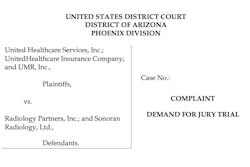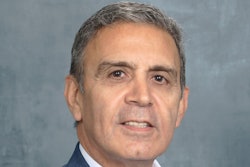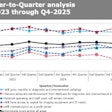Imaging experts and medical societies continue to push for the passage of a new bipartisan bill that aims to increase payment accountability for the No Surprises Act.
The No Surprises Enforcement Act, which was introduced in the U.S. House of Representatives and Senate in July, would fine health insurance companies that fail to pay physicians within 30 days after losing the independent dispute resolution (IDR) process laid out in the No Surprises Act (NSA).
“This is a real problem for radiologists and their practices and ultimately, their patients,” said Dana Smetherman, MD, chief executive officer of the American College of Radiology (ACR).
The ACR, along with other medical societies, supports the introduction of the enforcement bill into Congress. The college in 2024 reported that health providers prevail in over 75% of initiated disputes on average. The report’s findings suggested a strong indication that “payers involved in the disputes are underpaying providers for out-of-network services.”
A 2025 analysis by the Peterson-KFF Health System Tracker found that in the first quarter of 2024, health providers prevailed in 85% of disputes. And a 2024 report by the Harvey L. Neiman Institute in Reston, VA found that among eight specialties studies, radiologists would at least break even for between 11% and 27% of claims entered into IDR arbitration.
And while most federal IDR disputes relate to emergency services, imaging services represented about 17% of disputes in the first six months of 2023.
Smetherman said that timely payment has been a challenge for the No Surprises Act “since the beginning,” when legislation was enacted. Consequences from non-compliance in payment include stoppage of services or even going out of business.
“We hear and have heard lots of reports of delays in payment from all parts of this process, but certainly including the IDR process,” she said.
Dana Smetherman, MD, discusses the problems that practices have faced when seeking payment after the IDR process.
Mark Isenberg, who serves on the federal affairs committee for the Radiology Business Management Association (RBMA), said delays or noncompliance in payments would be most challenging for smaller sized practices or larger practices that may be doing IDR processes internally to scale.
“They are receiving the QPA [qualifying payment amount] on initial payments, so it’s not as if they aren’t getting at least some initial money from the carrier,” said Isenberg, who also serves on the RMBA’s Radiology Patient Action Network (RPAN). “But it does have an impact, especially if you are performing an IDR internally.”
And James Haynes, associate director of government affairs for the Medical Group Management Association (MGMA), said the IDR process itself has its share of costs for practices. The MGMA is another supporter of the enforcement bill.
James Haynes from the MGMA explains the costs that medical practices take on when entering the IDR process under the No Surprises Act.
The MGMA sent its letter of support to the members of Congress who sponsored the bill. It will continue to engage association members as the bill makes its rounds.
“We will be advocating for the passage of this important legislation on the hill in the coming months,” Haynes said. “Certain specialties like radiology have to deal with this [issue], sadly.”
Smetherman said the bill would also add transparency through reporting requirements to the U.S. Department of Health and Human Services (HHS).
Under the bill’s language, non-compliant parties would have to pay a penalty three times the differences between the insurer’s initial payment and the IDR entities’ ruling per claim. Claims would also be subject to interest.
“I really think this is a chance to make sure that the implementation is done correctly and it’s holding everyone accountable,” Smetherman said.
The ACR, like other associations, plans to engage with members to gain more support for this bill and work with legislators in Washington, D.C.
Mark Isenberg from the RBMA discusses how the No Surprises Enforcement Act would hold providers accountable in making payments stemming from the IDR process as part of the NSA.
Isenberg meanwhile said the bill will “give more teeth” to what the NSA aims to accomplish.
As part of the enforcement bill, the U.S. Departments of Labor and Treasury the Department of Health and Human Services (HHS) must submit reports to Congress due every February 1 and August 1. These will show the number of complaints by clinicians and patients, enforcement actions taken, total fines, and any monetary corrective actions.
“From that standpoint, it will help shed light on who the biggest offenders are,” Isenberg said. “I think just the open nature and enforcement of it will be a good thing for everyone involved, especially the patients, because they’re protected, which was the original intention of the No Surprises Act.”




















